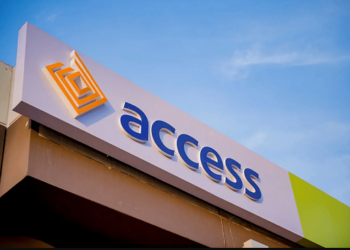The most capitalized telco on the Nigerian Stock Exchange (NSE) pulled off the largest Debut Commercial Paper Issuance by a Nigerian Corporate and many quickly jumped at it. However, while the company celebrates the feat it attained as many would for oversubscribed bond issuance, its reflection on the state of Nigeria’s economy reveals not-so-exciting truths.
In a corporate disclosure, the company announced its successful issuance of N100 billion series I & II Notes under the debut N100 billion Commercial Paper (“CP”) Programme. Beyond effectively connecting over 68 million people in communities across the nation with each other and the world, the company has set off on a course to raise capital efficiently amidst the trying times.
The company priced the series I 180-day CP at an effective yield of 4.90% for an N20 billion size and the Series II 270-day CP sized at N80 billion cleared at an effective yield of 5.95%. It had considered issuing half, at N50 billion under the Programme but a subscription of around 400% at the conclusion of the bookbuild, prompted an increase to N100 billion. Chapel Hill Denham acted as Arranger and Dealer on this debut commercial paper transaction.
Investors’ response and the problems with it
The public’s response to the issuance was tremendous, with the active participation of an array of individual and institutional investors, ranging from pension fund administrators to asset managers and more. While, on one hand, this is indicative of the formidable confidence its investors have in the company’s delivery on its strategic objectives as well as its strong credit profile fostering the confidence investors have on MTN Nigeria’s ability to repay, it is also a testament of the ailing state of the economy.
READ MORE: MTN Nigeria Communications Plc announces N100 billion commercial paper issuance
The very fact that a bond with an effective yield of 5.95% (far less than the prevailing inflation rate of 12.35%) has an oversubscription of around 400%, is worrisome. Worse off, its attraction to institutional investors like PFAs signals, by and large, an unhealthy economic terrain. Given the failing state of the money market, investors have clearly run out of the best places to invest their funds and are particularly risk-averse, opting for capital preservation strategies at the detriment of the entire economy. The attraction is also symptomatic of a demand and supply issue with more investors seeking safe havens and forcing the prevailing rates of such securities even lower.
Behind the rates
Upon closure of the Book Build, Ferdinand Moolman, Chief Executive Officer said, “The N100 billion issued is the largest debut Commercial Paper Issuance by a Nigerian corporate. It allows us to broaden our sources of funding and combines our established lines of credit with access to capital market funding, which will lower our overall cost of borrowing.” The company also noted that the successful Series I & II Notes will be listed on the FMDQ Securities Exchange and proceeds from the issuance are projected to be applied towards building the company’s working capital position amongst other general corporate purposes. But there’s more to it.
MTN Nigeria has undoubtedly secured market leadership, connecting over 250 million subscribers in Africa and the Middle East. Yet, their innovative and strategic expansionary measures over the past few years are probably the best thing about the company. As opposed to borrowing from the banks to raise funds at an interest rate which could be as much as 28%, the company’s 270-day bond issuance of 5.95% is has significantly reduced its cost of borrowing.
While this might not have an immediate impact on its share price which stood at N118/share as at Sunday, it has astronomically reduced its cost of operations and heightened efficiency.
The company’s Q1 2020 results reveal an ROE of 30.05%. While the CP Issuance might have been attractive for the already battered individual and corporate investor, the real winners are MTN Nigeria’s shareholders. With more capital raised at almost a steal, the company is set to deliver on its promises to its shareholders for much less than it could possibly have.






















